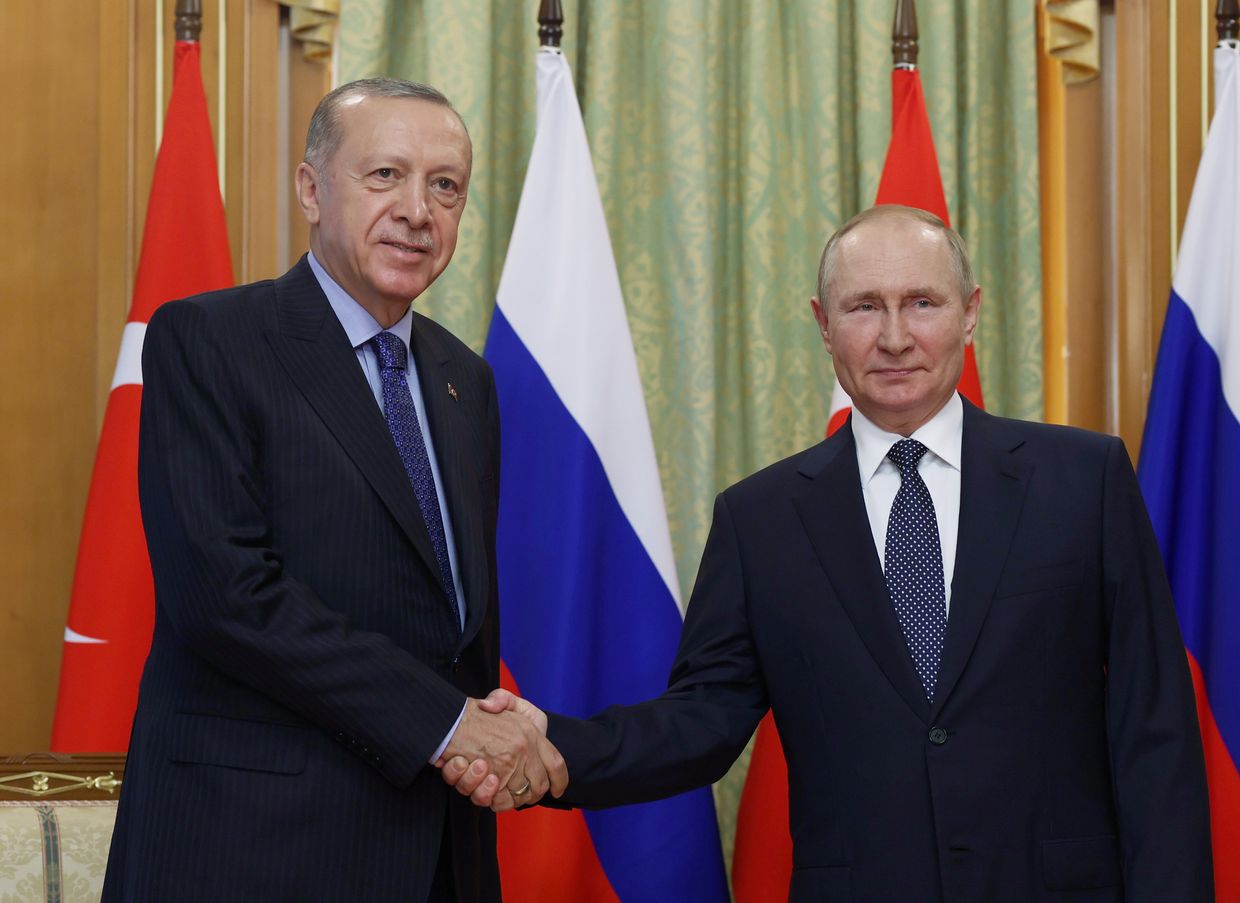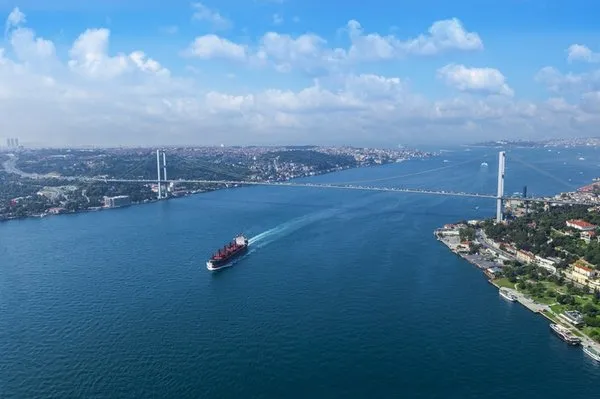Summary by News About Turkey (NAT):
The article highlights concerns about Turkey’s role in facilitating Russian oil exports despite sanctions imposed by the European Union and the G7. The key points include:
- Observations from Istanbul: The author describes witnessing Russian oil tankers navigating the Bosporus Strait, a crucial shipping route.
- Turkey’s Role: Turkey has become a major buyer of Russian fossil fuels, significantly increasing its imports over the past decade. In 2023, Turkey was the largest buyer of Russian oil and gas, amounting to about €42.2 billion.
- Sanctions Evasion: Despite EU and G7 bans on Russian oil, European countries are still importing Russian oil products indirectly through Turkey. The CREA-CSD report found that EU imports from Turkish ports increased significantly in volume, suggesting that Turkey’s storage facilities are used to reroute Russian oil to the West.
- Oil Laundering Scheme: The article suggests that the current sanctions regime allows Russian oil products to enter the EU if they are “substantially transformed,” which may be exploited by traders. The EU is urged to strengthen enforcement, including banning imports from facilities that handle Russian oil and penalizing companies that violate sanctions.
- Policy Recommendations: The author calls for lowering the oil-price cap to reduce Russian revenues and for the EU to accelerate efforts to reduce dependency on Russian energy sources entirely.
- Broader Implications: The article argues that the EU must fully divest from Russian oil and gas to avoid the negative influence of Russia on the European economy and politics.
The piece advocates for more stringent enforcement of sanctions and policy adjustments to address the loopholes in the current system.
Read more below.
Europe Must Clamp Down on Russian Oil Flows Through Turkey
To appreciate the booming Russian fossil fuels trade, one need only go to a rooftop cafe along the Bosporus.
Back in March, while sipping tea on an Istanbul terrace, I watched as, over the course of two hours, at least four tankers – later identified through open-source marine traffic websites – carried Russian crude and refined products through one of the world’s busiest shipping chokepoints.
A recent report by the Center for Research on Energy and Clean Air (CREA) and the Center for the Study of Democracy (CSD), confirmed what I observed in Istanbul. Turkey has facilitated the flow of Russian oil to the European Union since Russia’s full-scale invasion of Ukraine, enabling the Kremlin to circumvent the bloc’s sanctions and prolonging the war. In 2023, Turkey became the world’s biggest buyer of Russian fossil fuels, importing around 42.2 billion euros ($45.9 billion) in oil, natural gas, and coal from the country – a fivefold increase over the past decade.
Despite the EU and G7 ban on Russian oil imports, European countries continue buying enormous amounts of crude and oil products from Turkey. The CREA-CSD report found that between February 2023, when the EU ban and the G7 price cap on Russian refined petroleum products took effect, and February 2024, member states imported 5.16 million tons of oil products valued at 3.1 billion euros ($3.4 billion) from three Turkish ports – Ceyhan, Marmara Ereğlisi, and Mersin. Crucially, these ports have little or no refining operations and are heavily dependent on seaborne fossil fuels from Russia.
Over the same period, the EU’s total imports of oil products from Turkey increased by 107% in volume year on year. Meanwhile, Turkey’s total imports of oil products from Russia more than doubled in 2023, totaling 17.6 billion euros ($19.1 billion) and generating an estimated 5.4 billion euros ($5.9 billion) in tax revenue for the Kremlin’s war chest. Considering the negligible increase in Turkey’s domestic consumption of oil products, these findings strongly suggest that Turkish storage facilities are importing Russian fuel to resell to the West.

Given Turkey’s strategic location and its relatively limited refining capacity, traders have traditionally found purchasing and storing oil products more lucrative than processing crude. And now that the war in Ukraine has increased energy prices, Russia enjoys elevated margins for every barrel it sells in the EU. Most of that profit is realized by trading intermediaries of major Russian oil companies that tend to be registered in tax havens such as Switzerland, the Netherlands, and the United Arab Emirates.
The Kremlin’s strategy of using Turkey as a pit stop exploits a glaring loophole in the sanctions regime that allows blended Russian oil products to enter the EU. According to official guidance, such products must be “substantially transformed” – not just relabeled – to be considered no longer of Russian origin. This suggests that traders in the EU may have breached sanctions when importing from Turkish ports refined petroleum products that were mixed with or consisted mainly of Russian oil.
The EU authorities should put an end to this oil-laundering scheme by strengthening sanctions enforcement. That means undertaking due diligence to determine the origin of oil products being imported from terminals that accept Russian oil. Moreover, sanctioning countries must ban fossil-fuel imports from any storage facility that has received Russian oil products in the last six months to deter traders from exploiting this loophole.
The Office of Foreign Assets Control, the enforcement agency of the United States Treasury Department, must also impose penalties such as fines and asset freezes on shipping companies and entities that violate the current sanctions. Publicizing these penalties would likely deter others from engaging in similar trade. The EU should also accelerate the criminalization of sanctions violations and operationalize common institutions for sanctions enforcement, such as the European Public Prosecutor’s Office and the EU Anti-Money Laundering and Countering the Financing of Terrorism Authority.
More broadly, EU member states and G7 countries should accept that the current oil-price cap is failing to restrict Russia’s access to financial resources. Contrary to the conventional thinking in the US and the EU, lowering the price cap would in fact be deflationary, as it would force Russia to produce and export more refined products to make up for the loss in revenue. But CREA estimates that lowering the price cap to $35 per barrel for premium products and $25 per barrel for low-value products would cut the Kremlin’s revenues from seaborne oil products by 68%, or around 3.3 billion euros ($3.6 billion) per month.
Ultimately, the EU must fully wean itself off Russian oil and gas. It is the only way to unshackle the bloc from the grip of Russia’s state-capture networks, which continue to have a corrosive influence on the European economy and its politicians.
By: MARTIN VLADIMIROV
Source: Project Syndicate



